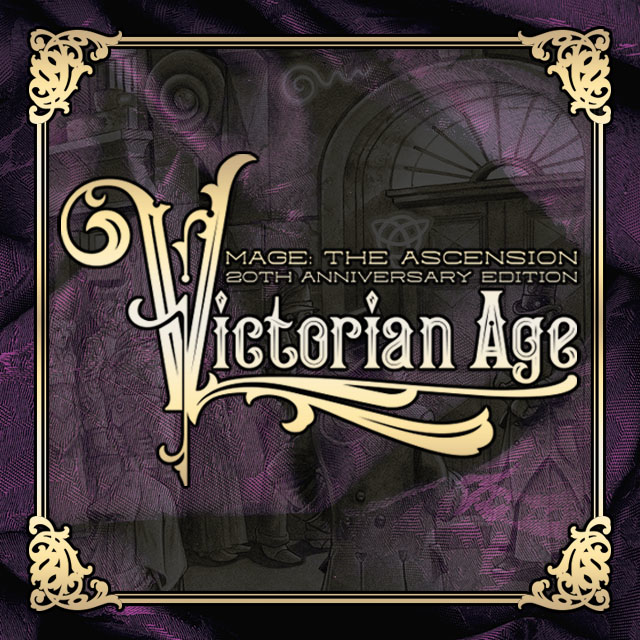Mon Mar 8 '21 Announcement
about 3 years ago
– Mon, Mar 08, 2021 at 07:48:33 AM
Territories: Victorian Reality Zones
The concept that “no one believes in magic” is a 20th century conceit. Although materialistic rationalism begins to spread in the Victorian age, the idea is by no means universal. Throughout the Gaslit Mystery era, even in the hearts of industrialized empires, belief in “magical” things remains strong. The Order of Reason, however, is forging a global paradigm based upon its wishes… and part of that effort involves purging its own religious roots in favor of mechanized authority. Thus, the Victorian Mage setting is hotly contested ground with regards to magick of all kinds. Certain forms fit the metaphysical landscape, others clash with it, and although hyperscience is shaping the road toward a Technocratic future, that road is rough, uncertain terrain.
In future days, this period will be (in)famous for “charting the unknown” and “settling the wild spaces” in favor of so-called civilization. For the people who have been living in those “unknown wilds” for centuries, however, this campaign of “civilization” means conquest and destruction. Understandably, many of those people fight back. In Mage: The Ascension, that fight goes poorly; in Victorian Mage, things may take an entirely different path. Gun-toting technomancers can find themselves mauled by spirit bears, or see their bullets bounce off the chests of charging Zulu warriors. The primary struggle in Victorian Mage involves conquering or preserving the metaphysical landscape of Territories: reality zones that accept certain forms of magick while rejecting others.
Game Systems for Territories
As M20 explains (see pp. 611-617), reality zones determine the difficulties and potential Paradox for magickal Effects cast within a given zone. Magick that suits the reality zone is considered coincidental, while magick that goes against it is considered vulgar. In Victorian Mage, a capital-T Territory represents a reality zone appropriate to this setting; within a Territory, suitable magicks are elegant or perhaps uncanny, while others become catastrophic.
The rules presented in M20 (p. 611 and 615-616) apply to Territories, with the following alterations:
- Instead of being coincidental or vulgar, castings are elegant, uncanny, or catastrophic.
- A Territory can be “converted” by either winning people over to a new way of thinking, or else by wiping out enough people (especially magi) within that territory to allow the metaphysical landscape to be altered in a new direction. See below for details.
- Once a Territory has been converted, another group of magi need to convert it back if they wish to restore it to its previous “setting.”
- If a Territory winds up completely uninhabited (or uninhabitable), then it eventually reverts to an Earthly Foundations zone.
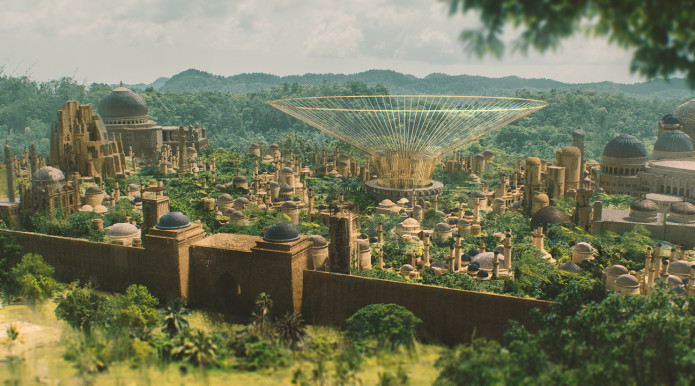
Territory Zones
The variable nature of Reality and Consensus in this era is a major aspect of Victorian Mage. Depending on where and when a given tale takes place, the characters could conjure storm spirits in a desert wilderness, trade enhanced fisticuffs in the London fog, or employ ancient Egyptian rites to awaken long-dead guardians or suffer curses from millennia ago.
The general sorts of Territories within the Gaslit Mystery setting are as follows:
The Heartland of Empire
All seems “right and proper,” as the saying goes, within the heartlands of this era’s great empires. Theatrical acts of magickal power are uncanny at best, and far more often catastrophic. Although occult societies proliferate through any empire of this age, their Arts remain confined to elegant subtlety. Industrialized technology, however, is often the pride of such empires; extravagant acts of mechanized power (clockwork robots, for instance, or death-ray cannons) remain catastrophic, but simpler things (motorized carriages, airships, and the like) are uncanny at worst and quite often elegant. Historically speaking, motorcars, locomotives, dirigibles, photography, telephones, electric light, machine guns, and so forth all enter the un-Enlightened Consensus during the 1800s; although such innovations seem peculiar when they first appear, the human imagination seems willing to accept them as part of a brave and wondrous new age.
“Empire” Territories, of course, are not specifically or exclusively European. Firearms and artillery, after all, originated in China centuries before the age of Napoleon, and had been used by Japanese forces as far back as the mid-1500s. Apache, Lakota and Comanche riflemen are every bit as skillful as their White American counterparts, and the first mechanized modern war begins in 1904, three years after Queen Victoria’s death, and results in Imperial Japan’s victory over Imperial Russia. Heartland of Empire Territories, then, favor subtle magicks and technology, not industrialized Arts over mystical ones. Tech holds an edge over “supernatural” spellcraft, but even advanced technology seems uncanny in such Territories.
Rules-wise, Heartland of Empire zones reflect the prominent cities and industrial centers of a given empire. Although modern technology seems more acceptable than overt magick, subtle forms of magick remain uncanny — not catastrophic — within Heartland Territories. Occult practitioners still conduct rituals after sundown, with séances being a popular activity even in the most industrialized metropolis. That said, such magicks are best concealed by darkness and secrecy. Although Straits points and backlashes for uncanny mystic Effects remain consistent (that is, uncanny not catastrophic), the casting difficulty for “superstitious” activities is one level higher (highest Sphere + 5) in sunlight and open view within a Heartland of Empire Territory.
The Occult Underworld
Even in modern cities, the Gaslit Mystery era accommodates hidden magick. Nighttime shadows and hidden spaces harbor séances and alchemy, mystic arts, and other secrets. Decadent parlors, vast cathedrals, catacombs and forbidden groves… such areas allow mystic practitioners to use magick with relative freedom and reduced consequences. Enlightened technology, too, works better in concealment. Mad scientists pursue abominable experiments even in the Heartland of Empire — they must simply be clever and cautious while doing so.
As noted above, uncanny magick is easier to cast in an Occult Underworld Territory… that is, in some location that favors eerie secrets and overt miracles. While such Arts must suit the nature of the Territory (a séance works better in a Pre-Raphaelite studio than it would in a steampunk laboratory), it’s relatively easy for a magus of the appropriate kind to cast uncanny magick amidst favorable surroundings. Game-wise, the usual difficulty (highest Sphere + 4) applies to uncanny workings in a suitable Occult Underworld. That setting need not be literally underground, of course; Chinese “boxers” can perform incredible martial feats in and around a Buddhist temple, even by daylight. Still, those feats must fit into the local culture’s idea of possibility; an Akashic practitioner may find himself at a disadvantage if he attempts to catch bullets in broad daylight whilst standing in Piccadilly Circus.
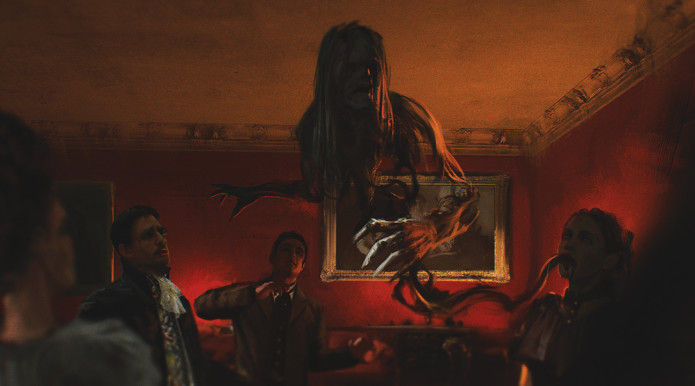
The Edges of Dominion
Empire exerts its influence only so far. In the rural areas of industrial nations, old-time beliefs still hold sway. Witches fly on broomsticks across the moors of Victoria’s Great Britain; medicine-men bless their warriors with bullet-proof skin in the so-called “Wild West.” A Roman Catholic priest casts out demons in rural Tuscany whilst a Shaolin boxer cracks stone pillars with a single blow. In Edges of Dominion Territories, the Old Ways hold an edge over industrial technology. Although extravagant acts of magick remain catastrophic (that medicine-man, for example, would be daring too much if he conjured a tornado from a clear sky), impressive feats of mystic Arts remain uncanny, possibly even elegant, if such feats are part of the ancestral culture of that Territory. Enlightened technologies, meanwhile, seem uncanny if not catastrophic; the Luminary who steers his giant clockwork spider into the Dakota Badlands is inviting a painful lesson from the Fates.
Game-wise, an Edges of Dominion Territory favors the traditional magicks of its home culture. In M20 terms, the Edges of Dominion resemble the entries for “Rural Areas,” “Regions of Faith,” and “Mystic Regions” (M20, pp. 614-615), depending on the cultures and beliefs of the people who populate those areas. In Victorian Mage, this is the default state for much of the world beyond the most populated industrial areas.
Enlightened technology and alien magicks are both out-of-place in such Territories — uncanny at best, catastrophic if they’re too overt. That British witch would be uncanny if she flew her broom across her moors, but such feats are catastrophic in Ethiopia, where such magicks seem unreal. A gunslinging Luminary dares catastrophe if he hauls out a Gatling gun in a Louisiana swamp during the 1800s; such machines may capture the Consensus someday, but on the Edges of Dominion this era is not that day.
The specific boundaries surrounding what is and is not acceptable in an Edges of Dominion Territory depend upon the traditional beliefs of its resident culture. Such beliefs, on a global scale, are too extensive to explore in this chapter, but the following guidelines may prove helpful:
- If the character is native to the regional culture, and practices Arts that hail from the local culture and its beliefs, then her subtle spells are elegant, her obvious spells are uncanny, and her extreme spells are catastrophic.
- If the character comes from a distant culture, and /or employs Arts that are radically different than those accepted for generations by local cultures, then all of his obvious spellcraft and /or Enlightened technology is uncanny at best and often catastrophic.
The metaphysical struggles between Luminaries and mystics play out in such regions. Under Mage: The Ascension chronology, this era ends with the majority of the world under Technocratic dominion. In Victorian Mage, however, things could turn out differently.

A brief excerpt from our next manuscript preview, which will be e-mailed out to backers on Wednesday morning! If you want to join in on the fun, back this project by tomorrow and be added to the list! Not only do you get to read the latest manuscript preivew, but you'll also have access to all of the preivews released thus far. AND you'll get us even closer to our next Stretch Goal!
#M20VA
#VictorianMage
Sat Mar 6 '21 Announcement
about 3 years ago
– Sat, Mar 06, 2021 at 06:42:24 AM
If the jungle had been hot and humid and oppressive, it was a winter morning in Wales compared to what waited in the pit. The air there was hotter, thicker with moisture, until it felt like moving through a veil of clinging fog, and it carried with it a thousand scents, each fouler than the rest, until Emma’s skin felt as if it would crawl cleanly from her body in disgust.
The porters had been left in the jungle with instructions to return to the port if the magi failed to return before the sun came up. Amoya had contacts there who could send a larger force to undo this terrible corruption.
One of the porters had agreed, after a sufficient bribe, to visit a gambling establishment which Emma knew to belong to a local Fortunae. He would be able to send word to the Order. Her last days, if not her last actions, would be added to the Record, and she would be preserved in the only manner she had ever desired. She would be listed alongside Trianoma and Bonisagus. Only a name, barely a child compared to the workings of the greater magi who had come before her and who would one day come after her, and yet. It would be enough. It had always been enough.
Rendell walked in the lead, a stick of some herb Emma didn’t recognize clenched between his teeth, eyes half-lidded as he chewed. Somehow, this didn’t seem to be interfering with his vision; he walked with easy certainty down the center of the tunnel, never coming close enough to brush against the walls. That was for the best. They were made of some fleshy, pulsing substance which glowed faintly, marked here and there with structures Emma could only think of as veins that had somehow grown into the shape of Enochian runes, spelling out filth she could barely stand to consider.
Some of the words on the walls were so compellingly vile that she had to look away, cheeks burning, lest she consider them too deeply and find herself unable to forget them later.
Amoya brought up the rear, machete in one hand and bottle of clear, sharp-smelling liquid in the other. She had developed a slight sway to her walk, an easy roll that managed to imply the dock of a ship beneath her feet, the whisper of the sea at her back.
It would figure, Emma considered grimly, that she would be descending into a pit in the earth with two magi whose Will worked better when bolstered with certain mind-altering substances, condemning her to be the only one truly sober. Perhaps that could be her addition to the Record, if she lived long enough to write it. Learn how to practice your Art when so piss-drunk that Zeus himself couldn’t sway you to his perversions, and you’ll be far happier when things turn dire.
Even wine would have been too much for her, and Amoya’s bottle held something far more potent than wine. Emma kept her eyes away from the walls and continued following the comforting shape of Rendell’s shoulders deeper into the darkness.
We’ll see the Orinoco together, she thought, firmly. We’ll sit on the deck of the ship that takes us to whatever’s next, and I’ll ask Amoya to pour me a drink, and I’ll drink it, whatever it is. I’ll sip and watch the sun go down, and I’ll never think of this place again, not for the rest of my life. I’ll go home to London and teach my apprentices things the Record never dreamed of, and this won’t be where I end, this won’t, this won’t.
The tunnel curved gently, winding deeper and deeper into the earth. The air began to take on a note of char that had previously been only hinted at; it tasted of brimstone and ash, like all the gates of Hell were opening wide.
“Braver than I thought you’d be, Hermetic,” said Amoya.
“Bravery is as bravery does,” said Emma. She glanced to the Cultist, who had pulled up even with her, walking by her side. “Why do you dislike me so?”
“Don’t dislike you.” Amoya took another swig from her bottle. “I hate you. Not the same thing, not by quite a few leagues.”
“Why?”
“Because you damned Hermetics are going to destroy the world.”
Emma bristled. “We’ll do no such thing. We make no attempt to make others think as we do; we incorporate everything we learn into our Records, and our Art. Nothing is lost when it falls into Hermetic hands.”
“But that’s where you’re wrong. Mystery is lost. Enigma is lost.”
“I belong to House Criamon. The study of mystery is my Art.”
“And when you find one, do you look at it, say ‘that’s a pretty puzzle,’ and leave it alone? Or do you pick it apart until it’s solved, and then write down the solution?”
Emma didn’t answer.
“That’s how you’ll kill the world. One mystery at a time, with a needle through its heart to keep it mounted under glass. When there’s nothing left to be discovered, it’ll be easier for people like the ones who dug this hole to come along and take it all apart. You don’t think of yourselves as the villains of the piece because you’re not the ones knocking people down and prying their faiths and beliefs and cultures from their hands, but you’re complicit. The ones who stand by and write it all down are as much a part of the story as the ones who actually act. And you Hermetics, you never act.”
“I’m acting now,” said Emma quietly.
“Then you’re better than most, and you’re still not worth my time.”
Amoya brushed past her, nearly knocking her into the wall as she moved to catch up with Rendell. Emma stumbled, putting one hand out to steady herself. It brushed against the runic veins curving through the fleshy stone—
The taint flows like wine through the cups of the earth, remaking what it touches in the image of those who came before and after, of the Nephandic masters of the light and darkness, and all shall be unmade and all shall be remade and all—
Emma pulled herself free of the terrible loop with a gasp and hurried to meet the others.
“This place must be destroyed,” she said, once she was close enough to keep her voice low and tight and unable to carry. “What it holds is…unspeakable.”
“That was the intention,” said Rendell. “You have any ideas as to how we’re going to achieve it?”
“They’ve used Enochian to stabilize the place, to keep it from folding inward on itself. It’s an affront to nature,” said Emma. “I can…Enochian is a negotiation as much as it’s a language. I can argue with what’s been written, if you can cleanse the taint somehow. If you can make this…not.”
“I can unmoor it,” said Amoya. “Can’t guarantee we’ll have time to run once that’s done, though.”
“And if you can unmoor it and tear down its defenses, I can tell the spirits of this place to come and finish the unmaking,” said Rendell. “It’s going to be dangerous.”
“We’re in a Nephandic pit,” said Amoya. “Everything is dangerous. You sure about this, Hermetic? You’ll never go back to your precious study if you die here.”
Everything is study, thought Emma. She forced herself to smile at the Cultist. “Then I suppose we’ll be an unsolved mystery for someone else to worry about,” she said. “Shall we cleanse what should never have been tainted?”
“We’ll try,” said Amoya.
Together, the three of them walked deeper into the earth, and only darkness lay behind them, and only darkness lay ahead.
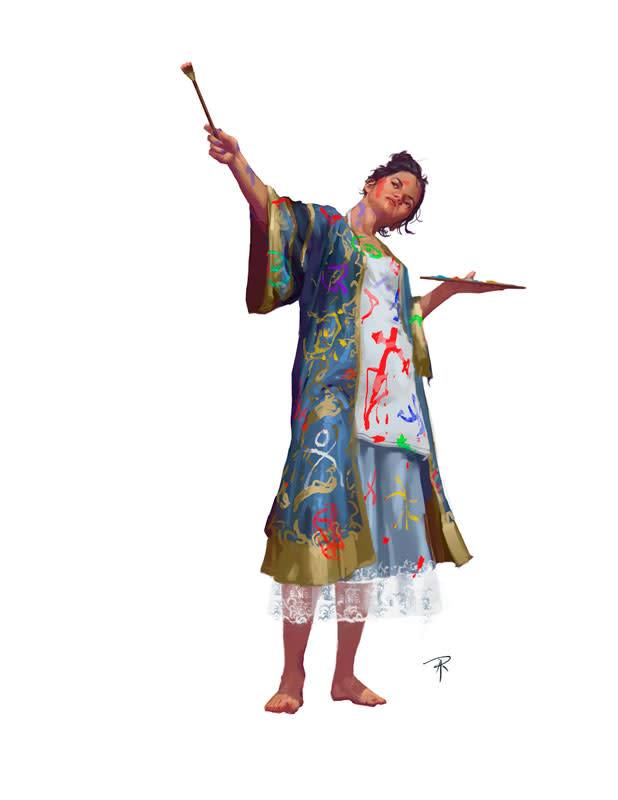
And thus concludes our three-part journey through this Mage: The Ascension fiction of the Victorian Age. On Monday, we'll take a peek at some of the manuscript bits coming our way next week, delving into some Victorian Reality Zones and then maybe looking at some of the innovations of Victorian Occultism as detailed in Chapter 6!
We're in the middle weeks of the campaign, which usually means a slow down, but we're actually getting really close to our next Stretch Goal and possibly being able to reveal the wave beyond that! So, please continue to spread the word! We've still got some time to go, but there are many M20 fans finding out about this campaign each day and we continue to grow! Let's see if we can keep it going!
#M20VA
#VictorianMage
Fri Mar 5 '21 Announcement
about 3 years ago
– Fri, Mar 05, 2021 at 07:44:39 AM
There were five of them in the group: Emma and her escort, two porters who carried the bulk of the supplies, and Amoya herself, who was approaching now, a machete in her hand and a scowl upon her face. Her skin was several shades darker than Emma’s own, which was in turn far darker than was fashionable in English society this season, a parting gift of the father she had barely known. They were both women, both wearing trousers as a concession to the heat and density of the jungle, and that was where the resemblance ended.
Where Emma was dressed in surprisingly tidy khakis — although not that surprisingly, given the amount of Art she had applied to the fabric to prevent it from tearing or staining or otherwise disgracing her in the eyes of strangers — and had her hair plaited back to keep it away from the reaching creepers and branches, Amoya wore a stained pirate’s shirt under an open vest, and allowed her hair to tangle as it wished, occasionally acquiring leaves, or feathers, or live butterflies from the brush around them. Her single remaining eye was wild, which made the sight of her bearing down on Emma, machete in hand, a rather daunting one.
Cultists were the same the world over. Sybaritic, uncouth, and far too interested in what the flesh could do in the moment, rather than in what art and the soul could do in the great fullness of time. It was some sort of cosmic joke that they were the Tradition most invested in the study of Ars Tempus.
“Hermetic,” spat Amoya, switching the machete to her other hand in order to grab Emma by the wrist. “With me.”
“I’d prefer it if you didn’t touch me—” began Emma, her final word turning into a shrill and undignified squeak as the other woman hauled her forward, away from the line, away from her personal guide, and toward whatever had caused their procession to stop.
There was a break in the trees. Through it, Emma could see three things, quite clearly:
The camp in the valley below, situated on a patch of ground that had been cut clean and then burnt, possibly several times, so that all that should have been green and growing had been reduced to feathery ash. It blew around the tents erected there like the dust of London, and like the dust of London, it looked like it would never, even given a million years, come clean.
The trees around the artificial clearing, which were twisted and charred until they somehow became parodies of themselves, like they had been encouraged to grow along channels which no trees should ever have sought to emulate or know. Their bark was scarred with deep gashes, too precise and carefully spaced to be accidental — even if Emma had been able to tell herself such pretty, pointless lies. It was writing. Someone had used the living bodies of the tainted trees to write a paean to things she didn’t want to read too closely, lest she begin to understand what they were trying to communicate. To write those words at all was a crime. To write them in Enochian was…
Was a blasphemy.
As to the third thing, it, too, was blasphemous in its way: a cavern in the earth, gaping like a wide and toothless mouth, leading down, down, down into the depths, down below where the water table, shallow due to the nearby Orinoco, should have led to its collapse. Emma fancied she could smell the reek of it from where she stood, and it smelled of death, and despair, and all the things she’d thought to leave behind in fair England, where the only true fairness was in the uniform unfairness of it all.
“What does it say, Hermetic?” demanded the woman beside her.
Emma glanced her way. “You can read it?”
“I know enough to recognize Enochian when I see it.” Amoya turned and spat into the brush, as if the word had somehow befouled her mouth. “I can’t read a word of it, or your people would have scraped out the inside of my mind to keep me from spilling their secrets, but I know the filthy look of it.”
“I can’t tell you what it says.”
Amoya’s eyes narrowed. “When I agreed to let you and your pretty escort on this expedition, it was on the condition that you follow my instructions. What does it say?”
“I’m not refusing to live by the terms of our agreement,” Emma said. “I’m telling you, with the utmost respect and honesty, that I can’t read it, for to speak such things aloud is to grant them credence, and to do so as a speaker of Enochian and worker of my Will upon the world is to grant them power. If I read you what is written on those trees, I invite it into our presence. That would be sincerely unwise of me.”
“Not wanting to be turned inside-out by something that can burrow into a hole like that one, I’m with the English girl,” said her escort, who had crept up on them while they were focused on the clearing.
Emma was unsure as to the wisdom of sneaking up on women who were carrying machetes. Under the circumstances, she felt it wiser not to say anything.
“That’s a Pit, isn’t it?” The escort — Rendell, his name was Rendell, and she needed to remember that people outside the Order had names they were fond of and attached to, and that she could use them without remembering their associated honorifics and qualifications — nodded toward the clearing below. “Saw one of them once, in a jungle a lot like this one.”
“What happened?” asked Emma.
“I ran,” he replied, without a hint of shame. “Hang around a pit, lots of awful, twisted-up things are likely to take notice of your presence, and once they’ve noticed you, there’s not much you can do to keep from becoming an awful, twisted-up thing yourself. I like my face the way it is. Don’t need extra arms or too many teeth.” He flashed a quick, dazzling smile. “No one buys drinks for the boy with too many eyes.”
Emma took a breath and looked over her shoulder to where the porters waited, silent and burdened with the group’s gear. Then she returned her attention to Amoya.
“We can’t allow this to stand,” she said quietly.
Amoya raised her eyebrows, apparently surprised. Somewhere in the trees, an impossible bird cried out and was silent.
Everything seemed silent in that moment. Even the buzzing of the bees had stopped.
“Really, Hermetic?” she asked. “Don’t you want to run? Back to your safe little workshops and locked doors? This isn’t a training exercise. No one’s going to draw the wards and call time when they feel like you’ve learned enough.”
Emma took a deep breath, feeling the pollen and humidity fill her lungs until it was as if she had breathed in the entire jungle. She had never known the air of India, where some people said her family’s ancestors had originated; had known the cool rains of Scotland, where the campana had camped the day she was born, and then the sooty air of London, where the orphanage had been located, and finally the clean, cool air of the Hyde Park Chantry, where she had been taken upon her Awakening and apprenticeship. She thought she might well have been waiting her entire life for air like this, air without preconceptions of who she was, air that still deserved to be protected.
“I don’t know what the Order did to you; whatever it was, I suppose I’m sorry, because even if it was in response to your own actions, it was clearly not explained enough to make it bearable,” she said. “I don’t know why you dislike me so, or why you accepted my money when you clearly abhor my company. It doesn’t matter. That,” she gestured toward the pit, “is an abomination in the eyes of any who possesses the sense to see the natural order of things, and it must be unmade.”
“There are three of us, Hermetic,” said Amoya.
“Yes.”
“None of us sings the same song.”
“Does that matter?” asked Rendell. “I don’t know this Enochian, but it seems to me it’s a thing that doesn’t belong here. If something doesn’t belong here, we have a duty to do away with it.”
“It’s the tongue of the angels,” said Emma. “They spoke it before humanity learned to speak for ourselves, and presumably they speak it still, in whatever fold of the universe they occupy.”
“Well, they never spoke it here,” said Rendell firmly. “I’m with the Hermetic. We unmake this.”
“Then down we go,” said Amoya.
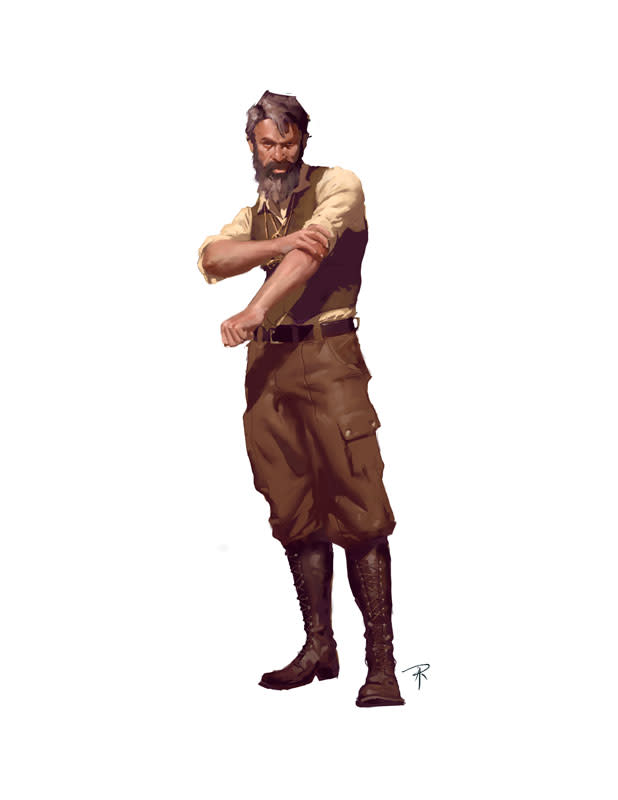
Thu Mar 4 '21 Announcement
about 3 years ago
– Thu, Mar 04, 2021 at 07:00:17 AM
The Republic of Columbia, South America, following a trail roughly parallel to the Orinoco River
1891
The heat was oppressive. It bore down with such density and pressure that it seemed to carry literal weight, as if the air itself had become tangled in the temperature and refused to be dissuaded. Emma flicked a jeweled wasp away before it came alight on her face, wondering once again how her simple desire for knowledge had led her to this place, so very far from the cool fogs and rolling hills of England. She had wanted to see the world, had expressed that desire to her parens, and somehow that desire had translated itself into a berth on a Chorister ship bound for South America, as if vomiting every meal she’d eaten since childhood into the starving sea would be somehow educational.
But then, perhaps it had been. She had learned that the waves were less terrible belowdecks, and that after months surrounded by rotting wood and rough, if well-meaning sailors, anything would seem to be an improvement.
She could have done without the wasps, to be fair. And the constant feeling of observation from the trees, which were filled with all manner of wondrous beasts she had yet to learn the names for.
“Learn,” Master Ogden said, voice firm, eyes kind. He had truly been the best parents she could have asked for, unfocused and flighty as she was. He had told her, more than once, that she would have done very well in an earlier age, before the Order had narrowed itself so; had said that, as the world was widening, perhaps the Order and Houses Hermetic would widen itself in turn, remembering what it was to be great, and how it was to be so open that all who sought enlightenment had no choice but to stumble through its doors. “You are not there to influence, not there to lay claim. Come home with only what you are given freely, and use that to expand your understanding of the world. You are my finest student. Show the world what that means, and what it means to be Hermetic.”
Too often, it meant looting and pillaging like a common pirate, like these were still the days of Rome and the endless expansion of Hermetic thought across the world. Master Ogden had been right when he said that the Hermetics were the children of Empire, not the heralds of it; they had been born when the world seemed to be an apple ripe for the plucking, and now they were the worms clinging to its gnawed-upon core, watching in dismay as other hands reached for other apples, intent on devouring them in turn, even as the first had been devoured.
To be true to the teachings of Trianoma, it was necessary to retain an open mind toward all teachings and all theories of magical thought. Only by understanding the wonders of the world could those wonders be incorporated into the rich tapestry of the Hermetic Record. Only through the Hermetic Record could the paths to Enlightenment be charted and made clear.
Every time the Order had allowed itself to grow narrow in its thinking, it had paid, oh, how it had paid. The destruction of Díedne; the betrayal of Tremere. Their names were artifacts and incantations now, curses to spit into a darkened room, but once, they had represented bright and living figures in the great equation of the universe. Their loss had lessened the Order in ways that would never truly heal. They were gone, and they would not come back.
Emma sometimes thought she might have done well in Díedne, had those teachings yet been open to her. But that door was closed, and so she had gone to Criamon, following the twisting tongues and delicate riddles of the Adepts who had come before her, and she had learned such wondrous and essential things. Still, as Master Ogden always said, the world was a riddle, and it was her duty to solve it as best she could. That couldn’t happen until she found as many of the clues as she could. She would travel to the edges of the Earth in order to bring them home.
The Choristers had left her at the port, heading on their own pilgrimage down the coast, doubtless to bring the word of their God to anyone who would listen. It was distasteful, the way they preached and preened and pretended that only their precious Lord could have had any hand in the making of the world. They could have done with some of the tapestry of Hermetic thought, which would have shown them quite clearly that even omnipotence would come with patterns and predictable flourishes the world simply didn’t show. Their God might well have had a hand in things — Emma didn’t know, and was quite opposed to asking, as asking often served as the precursor to a sermon — but it seemed doubtful that he could have done it all on his own. Even the greatest Adepts took apprentices to keep their workings moving smoothly. Surely the same would apply to the gods.
“Hold!”
The shout came from the woman who was leading their expedition to the Orinoco, where they would be meeting up with a local riverboat captain to continue the journey downriver. Emma stopped immediately, willing herself not to pant from the combination of heat and exertion. The jungle pushed in around her, blocking out the worst of the sun while trapping most of the humidity under its leaves, turning the world into a sauna.
Leaning forward, she tapped the elbow of the man she’d hired to escort her on this expedition, a charming young Dream-Speaker of Brazilian extraction whose response to her offer of employment had been laughter, followed by quoting an exorbitant fee that he had been willing to cut by more than half once she assured him she was not traveling with the Choristers. Whatever she might think of their tendency to witness to the world, it seemed that they were even less well-regarded by the people they had come to “enlighten.”
Really, if they would just confine themselves to the Church, they would have done better for themselves. But then, she had met some who’d say the same of the Hermetics and their universities, and as she had no more interest in being confined than she did in a simple life of privation and prayer, she supposed it wasn’t her place to say anything.
“Shh,” he said, only barely glancing back at her. “Something’s up ahead. Amoya wouldn’t have called a stop otherwise.”
“Something…large? Dangerous? Venomous?” They had seen quite a few snakes since leaving the last town behind. Emma wasn’t sure she could believe her escort’s claims that each was more venomous than the last. She was quite sure she didn’t want to test her doubts. That would involve being bitten by something that could potentially kill her, and if she’d been in the mood for sporting with snakes, she would have stayed home and danced with the Quaesitori.
“Something foul.”
A chill seemed to blow through the sweltering jungle. Emma put one hand to the hollow of her throat, clutching the small piece of meteoric iron that served as her Showstone, letting strength flow from it into her, bolstering her bones. Whatever they had stumbled into, they would be able to face it. They were magi and consors, and this was a world of wonders, ready and eager to be understood. Nothing could be so dire as to stop that understanding.
To Be Continued...
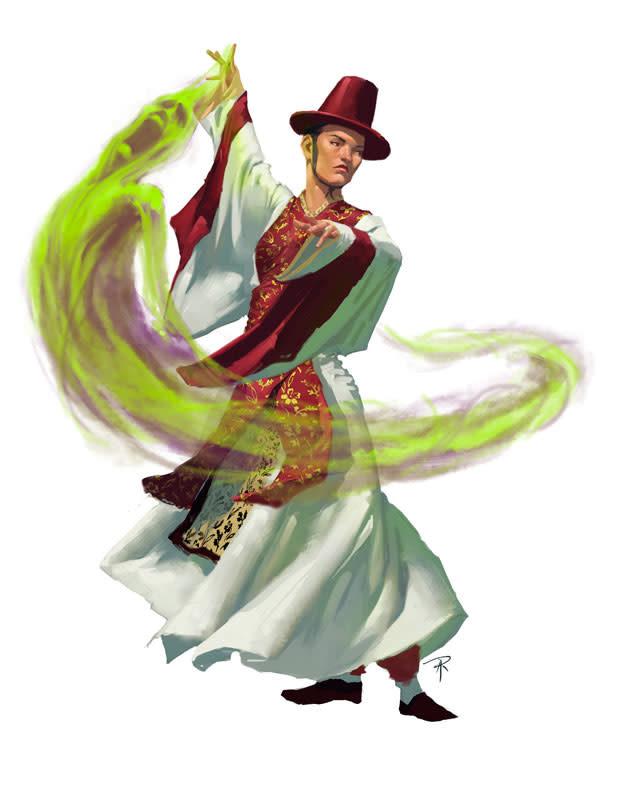
Wed Mar 3 '21 Announcement
about 3 years ago
– Wed, Mar 03, 2021 at 07:39:32 AM
Hello Extraordinary Benefactors!
Before we dig into the Crafts, let's talk about the real magick we've got going on.

At $63,000 in funding – Digital Wallpaper – Dress up your monitor with a wondrous scene from Victorian Mage, which will be added to the rewards list for all backers.

At $66,000 in funding – Victorian Mage Jumpstart – An introductory scenario, designed to introduce new players to the game, systems, and setting will be created and combined with the Instant Mages characters as a supplemental Jumpstart! PDF, which will be added to the rewards list of all backers receiving the Victorian Mage PDF.
That's right! We've hit TWO Stretch Goals since I posted our update yesterday. A perfect way to start our second week of this Indiegogo camapign! Let's keep it up and see if we can add another new supplement to our possible rewards.

At $70,000 in funding – Bizarre Tales & Unusual Characters – A small companion book with playable stories and intriguing ne’er-do-wells will be created and released in a supplemental PDF, which will be added to the rewards list of all backers receiving the Victorian Mage PDF.

The Crafts
The eight Traditions and the Order of Reason’s Conventions are far from the only magickal organizations that exist in this era. Indeed, there are dozens of Crafts. Many are small and highly localized, limited to a single polity or culture or people. Others are relatively widespread, with influence and membership that stretches across many lands.
In this era, the difference between Traditions and the larger Crafts is sometimes arbitrary. The eight Traditions are all part of the misnamed Council of Nine, and the Crafts are not, but the Council of Nine is in disarray and several larger Crafts are at least as large and influential as some Traditions. In some regions, the influence of one or more Crafts is greater than that of any of the Traditions, while in others, like China, the degree of opposition or cooperation between Traditions and Crafts is crucial to that region’s fate.
By the end of Victoria’s reign, some smaller Crafts have died out, typically because of violence and disruptions caused through imperial conquest. Other small Crafts eventually join and become offshoots of a larger Craft or one of the eight Traditions. However, for most of the era, there is a vast diversity of magickal styles and practices.
The Great Crafts
Like the majority of the eight Traditions, most larger Crafts are geographically limited. Many only exist within a single nation, or only influence a series of nearby nations that share a similar culture and history. The notable exception to these geographic limits is the Bata’a, which has spread from Africa to all across the Caribbean, and into North, Central, and South America.
This section examines the Bata’a, the Hollow Ones, and the Wulong, the largest and most widely influential Crafts who are each as powerful as a Tradition. These three Crafts are located in different regions of the globe; the Bata’a’s range was mentioned above, the Hollow Ones are almost exclusively a Western European Craft, while the Wulong solely exist in China and the Chinese diaspora.
The Bata’a are widespread, relatively well organized, and actively working to resist European oppression and conquest. In some ways, it is both better organized and more determined in this resistance than most Traditions. The Hollow Ones and the Wulong are both locally powerful within their own territories. However, there is no reason that a Storyteller needs to primarily focus on these three Craft to the exclusion of others. While many Crafts are smaller and their sphere of influence is more circumscribed, all are important in their regions. Also, unlike the modern day where the Council of Nine has incorporated portions of various Crafts and presents a more or less well-organized opposition to the Technocracy, the situation in the Victorian era is in flux. Not only could any one of the three Crafts described below join the Council of Nine, any one of them could become a major force in opposition to both imperialism and the Order of Reason, rallying Traditions behind their banner and taking a leading role in the fight for both magickal and mundane freedom.
Crafts like the Wulong are the dominant magickal organization in their region. Although in the established history one or more Traditions eventually took a leading role in that region, there’s no reason why a Storyteller needs to stick to that outcome. Perhaps the Wulong becomes better organized, and through a mixture of determination and luck ends up incorporating much of the Chinese Akashayana, or reaches a mutually beneficial power-sharing arrangement with them.
Most of the Traditions have at least some members from Europe, and three of the eight originated there. In contrast, except for the Hollow Ones and the Sisters of Hippolyta, none of the Crafts in this chapter come from Europe and most have very few European members. Although many Crafts are as old as the Traditions, most were considerably more isolated for most of their history. Where the various Traditions have been both warring and sharing ideas with one another for thousands of years, the majority of Crafts interacted with at most a single other Craft or (in the case of the Wulong) a single Tradition. However, the changes occurring in this era have brought these Crafts into far greater contact with both the Order of Reason and each other. These same changes have given birth to new Crafts, like the Hollow Ones and some recent Crafts that practice technomancy.
Most of the Crafts mentioned in this chapter have influence in regions under threat from colonization and European imperial powers, and their membership is largely or entirely people of color. While most Hollow Ones are Europeans, they primarily recruit from the working and middle class. As a result, these Crafts are even more embattled than the eight Traditions, and all of them lack the comparative luxury Traditions like the Order of Hermes and the Chorus Celestial possess by virtue of membership among educated European elites. Instead, many of the Crafts described below are at the forefront of the struggle between colonial aggression and local resistance.
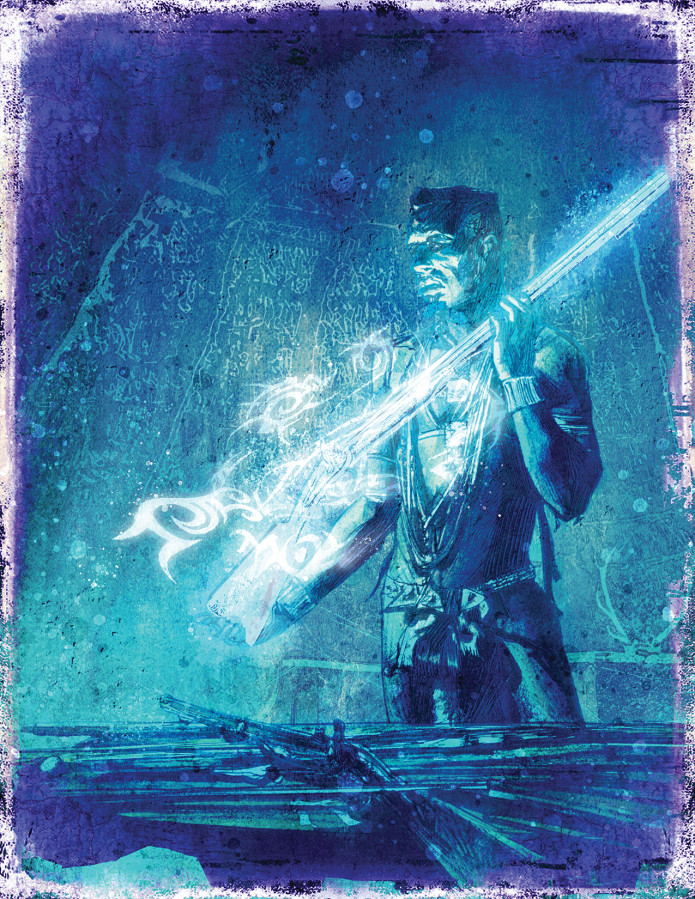
The Wulong
The vast majority of the Wulong have little patience for personal enlightenment or hidden truths. They are a Craft devoted to maintaining order based on strict adherence to Confucian principles and the vast power of precisely organized, carefully maintained magicks. For the Wulong their magick, their organization, and China as a whole are one and the same. They draw power from dragon-lines that crisscross the Middle Kingdom and direct it using the structures of their elaborate hierarchies. In Wulong eyes, every group and individual in China has its proper place and role, and the Craft seeks to amplify and reinforce these roles.
In the past, the Wulong maintained their power, despite dynastic struggles and foreign conquest by Mongols and Manchu, by seeking to influence any new rulers into conforming with their enduring Tianming ideology — the idea of a mandate of Heaven. However, the new threats to China are distant empires who see it as a resource to be plundered rather than a nation to be ruled, and the Wulong have so far failed to adapt. The Craft is fighting a rearguard action; without a major change in their situation or a radical new approach, the best they can hope for is losing control of China gradually rather than swiftly, and to attempt to minimize the damage done by colonizing forces and their allies in the Technocratic Union.
The other major problem facing the Wulong is internal. Corruption and internal division is rampant within the ranks. While some Wulong are desperately trying to prevent or halt imperialist incursions, others care far more about humiliating their rivals in the Craft or using power and influence to better their own lives, with little concern for China or even the rest of their fellow Wulong.
Prior to Victoria’s reign, the Wulong were secure in their positions of power and cared little about the lives of Sleepers and magi beyond China’s borders, or the activities of European traders and missionaries who visited the region. Their concern was for China alone, and they remained certain that no outside barbarians could upset the power and grandeur of their nation. Instead, they continued their ancient tradition of working with the local Umbral hierarchy to oversee the spiritual affairs of China, while trusting that they could find all answers in their history and the writing of their founders. Among those who worried about the opium trade, most were confident that laws, custom, and their own magick could keep this problem from becoming too serious.
The First Opium War shatters their confidence. In 1839, the Chinese emperor rejects a British plan to legalize opium in China and decides to completely ban the opium trade. The British reaction is brutal, swift, and decisive. While Luminaries strike at Wulong magi, the navy destroys numerous Qing warships and within three years British forces have won the war, secured numerous treaty ports where they can trade whatever they want to sell, and seized the island of Hong Kong. The opium trade in China grows faster than ever before, the Order of Reason’s paradigm secures a strong foothold within China, and the Wulong realize that they now faced a threat like none they have ever experienced.
After defeat at the hands of an enemy they had previously dismissed, many Wulong panick. Existing internal divisions grow far worse; factions who have previously cooperated now splinter over different solutions, and more than a few see the threat as an unparalleled opportunity for personal advancement. One faction puts aside their battles with Chinese Akashayana to work together with members of the Tradition and protect China from the magickal threat. Unfortunately, although willing to cooperate, the Wulong attitude of superiority has not changed. As a result, magi who allied with the Wulong often find themselves treated as servants or inferiors. These attitudes persist until the Second Opium War (1856-1860), another swift and terrible victory by the British that further reduces China’s ability to protect its borders, enforce its laws, or govern its citizens.
During both wars, the Wulong sees weapons and soldiers empowered by the Order of Reason’s paradigm can largely ignore the powerful magicks that have protected China for millennia. The power of the Wulong’s dragon-lines prove to be a poor match for rifles, cannon, and steam-powered gunboats. For most of the era, the Wulong grow increasingly desperate. The British and other European powers continue to gain greater political and economic control of China, and their paradigm spreads from their treaty ports to all large Chinese cities.
Eventually, the younger members of the Wulong reluctantly conclude that trusting China and its traditions to contain the answers and solutions to all worthwhile questions and problems has utterly failed. Instead, they begin seeking answers elsewhere. They strongly reject all advances by European and American Tradition magi, believing them little better than the Technocratic Union. Instead, they look to other Asian magi, abandoning the Crafts’ previous attitude of superiority and disdain.
As the younger members gradually change their attitudes, they also begin coordinating efforts with all branches of the Akashayana, instead of merely those in China. However, even the most progressive Wulong balk at working with magi who are unwilling to fit into the Craft’s hierarchy of Heaven and Earth, which naturally places the Wulong in authority over other magi within China.
The Wulong seek a way to protect China from the Order of Reason’s paradigm and to permit it to exist within its own uniform and well-defended paradigm. The wiser and most progressive Wulong extend this idea to encompass a pan-Asian form of consensus, one that would free Vietnam and Burma from colonial rule and allow Siam to remain independent.
All but a handful of Wulong refuse to consider options like adapting to the changes already taking place in China, or even just retreating and gathering strength before returning to the attack. Most also reject reformers who seek to replace China’s imperial hierarchy with more egalitarian structures, believing that such changes would destroy the very essence of both the Wulong and of China itself. Instead, the Wulong seek a way to attack westerners and the threat they represent head on. Some advocate the use of politics, magickally enhanced diplomacy, blackmail, and assassination. Others see the solution as war, and eagerly work with the Akashayana’s warrior faction in the prelude to the Boxer Rebellion.
Prior to their defeat during the Boxer Rebellion, the Wulong remain a relatively large and exceedingly well-organized Craft, and have the potential to become a true focus for Chinese or pan-Asian resistance. However, this change requires not merely creativity and flexibility, but also a greater willingness by the Wulong to listen to magi who are not members. If younger members of this Craft, or members of some other Asian Craft or Tradition, can find a way to convince the Wulong’s leadership towards gathering a multitude of disparate allies, they have a chance to reshape the future of China and beyond. However, without such reform, the Wulong are doomed to stubbornly fight a losing battle.
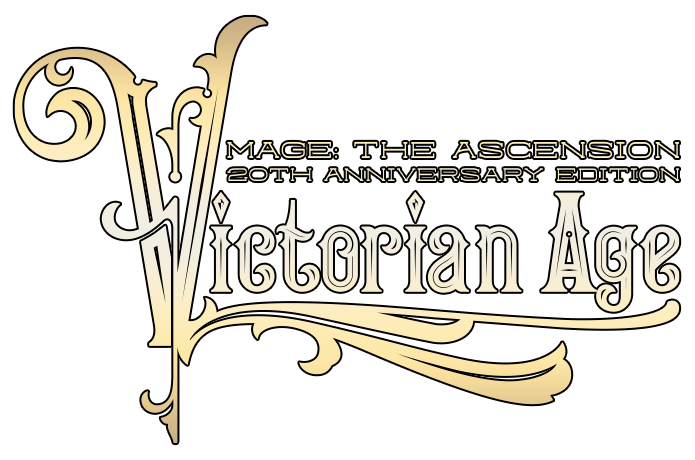
This is a small segment from Chapter 4, which covers the Crafts for the Victorian Age. All current backers will be receiving an e-mail today with the current draft mansucript for Chapter 3 and 4 - remember to check your Spam filter and folder if you haven't seen it.
We'll have the previews for Chapter 5 and 6 going out in one week! If you haven't yet joined up, please think about contributing by next Tuesday so you'll be included on the campaign mailing list for the manuscript previews!
The preview e-mail also contains the link to the Feedback form. Onyx Path wants to hear from you! Let's help provide feedback to guide them through their next stages of editing and development and make this book even more awesome!
#M20VA
#VictorianMage



